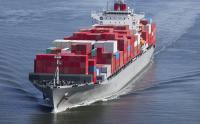
A $10.4 Million penalty has been issued for violations of the Act to Prevent Pollution and felony obstruction of justice charges against Columbia Shipmanagement (Deutschland) GmbH (CSM-D), a German corporation, and Columbia Shipmanagement Ltd. (CSM-CY), a Cypriot company.
According to the sentence details, $2.6 million of the penalty will be directed to the National Fish and Wildlife Foundation to fund community service projects selected to help restore the coastal environment of New Jersey and Delaware hit by Hurricane Sandy. The remaining $7.8 million is designated as a criminal fine.
The shipping firms admitted that four of their ships - three oil tankers and one container ship - had intentionally bypassed required pollution prevention equipment and falsified the oil record book, a required log regularly inspected by the U.S. Coast Guard. The case is the largest vessel pollution settlement in either New Jersey or Delaware.
The companies previously pleaded guilty before U.S. District Judge Susan D. Wigenton on March 21, 2013, to six counts involving three vessels in New Jersey and four counts involving one ship in Delaware. The counts consist of violations of the Act to Prevent Pollution from Ships for failing to maintain an accurate oil record book, obstruction of justice and making false statements.
The Delaware investigation began in October 2012 after several crew members of the M/T Nordic Passat provided the Coast Guard with a thumb drive containing photographs and video showing how illegal discharges had been sent overboard through the ship’s sewage system.
The investigation into the M/T King Emerald was launched on May 7, 2012, after several crew members provided cell phone photos and other evidence to Coast Guard officers conducting a routine inspection.
The charges involving the M/V Cape Maas stem from a whistleblower report to the Coast Guard when the ship visited the port in San Francisco. The whistleblower provided a video showing the operation of the oily water separator pumping overboard without the use of the oil content monitor to detect and prevent oil from being illegally discharged.
Violations on a fourth ship, the M/T Cape Taft, which was anchored in New York waters and destined for New Jersey, were uncovered just weeks before the March plea, after the ship disclosed problems to CSM-D.


